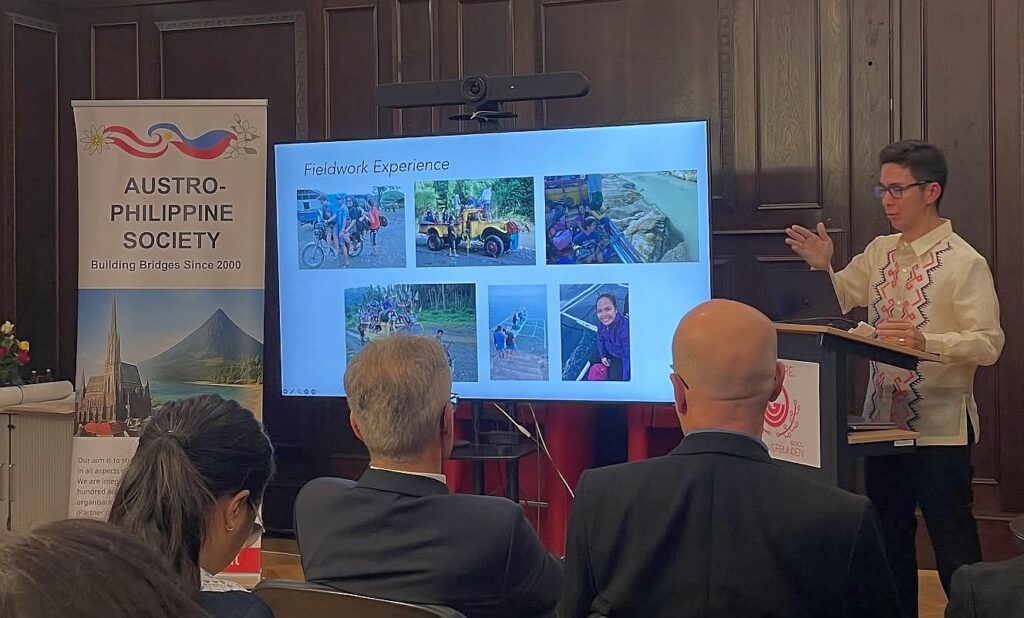
On 10 November 2025 the Ferdinand‑Blumentritt-Medal ceremony took place in the Heinz‑Zemanek Hall of the Austrian Computer Society. The event was livestreamed worldwide by technicians from the Philippine Embassy and attended in person by a full house of fifty guests.
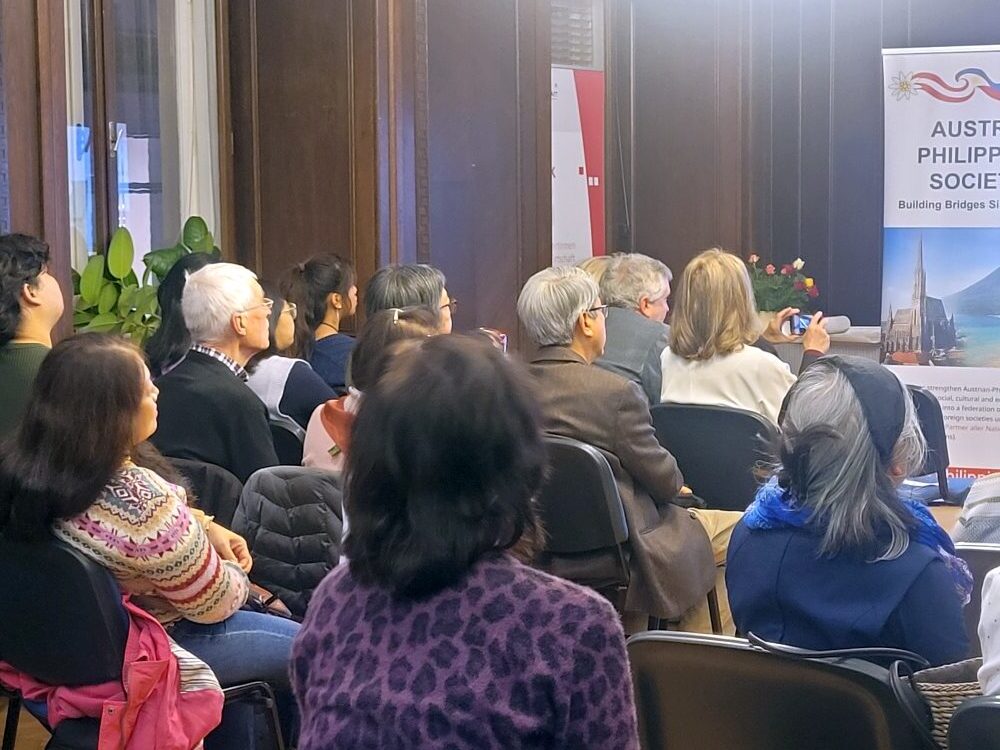
Opening remarks and award presentation
Univ.-Prof. Wolfgang Obenaus, President of the Austro‑Philippine Society, opened the programme and acknowledged the generous support of patron Franz Jerusalem Wuth, a Filipino-American from California, Mag. Siegfried Höfinger, Secretary General, outlined the criteria guiding the medal’s award and explained why Larena Labs was chosen as this year’s honouree. Vice President Dr. Camilo Antonio then gave a resonant tribute to the laureate, delivered in an eloquent, metaphor-rich manner.
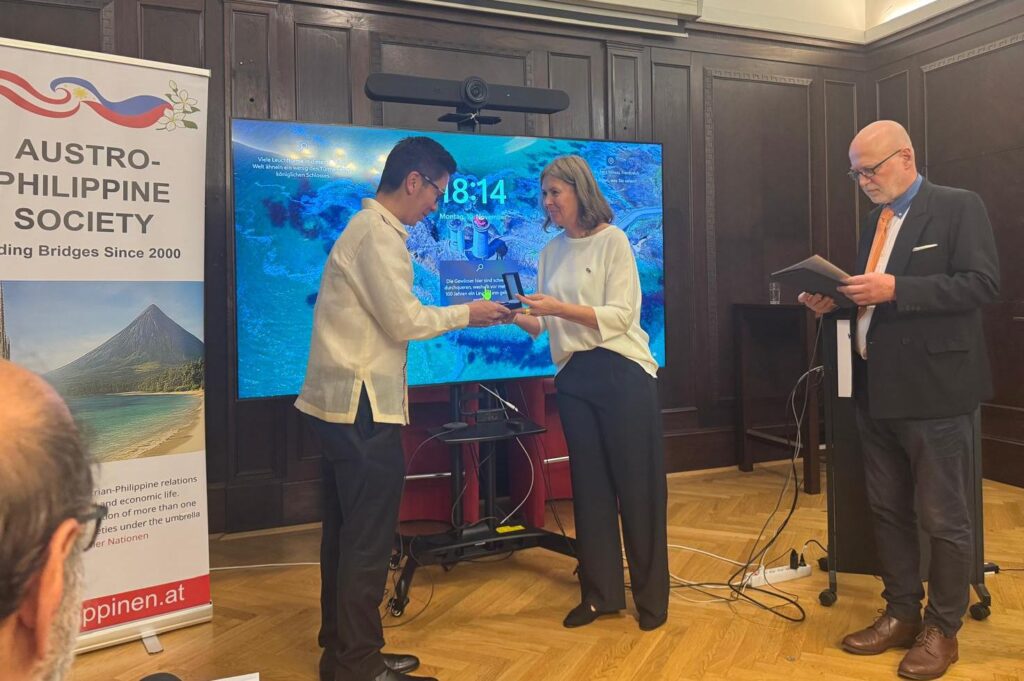
Professor Maximilian Larena, invited to Vienna as Larena Labs’ representative, was called forward to receive the citation read aloud by Mr. Höfinger. The award certificate was presented and Elke Pickert, a direct descendant of Ferdinand Blumentritt, formally conferred the medal.
Lecture overview
Professor Larena’s lecture, titled “The Genetic Origins of the Filipino People,” combined empirical data with a clear narrative that made complex genetic results accessible to a general audience. He framed the archipelago’s population history as the product of multiple, temporally distinct migrations and prolonged local developments rather than a single founding event.
Key themes and takeaways included:
- The archipelago’s genetic landscape reflects several broad migration phases over tens of millennia, producing an unusually deep and layered ancestral record.
- Genomic evidence points to successive influxes of groups whose interactions with resident populations shaped present-day diversity; these waves differ in timing, source regions and demographic scale.
- Among the lecture’s notable findings was the exceptionally high level of archaic hominin ancestry identified in certain Negrito groups, which Professor Larena highlighted as a crucial clue to early human contacts in Island Southeast Asia.
- The research draws strength from integrating genetics with archaeology, linguistics and geological models of sea‑level change, enabling more robust reconstructions of past movements and local population continuity.
Research practices and community engagement
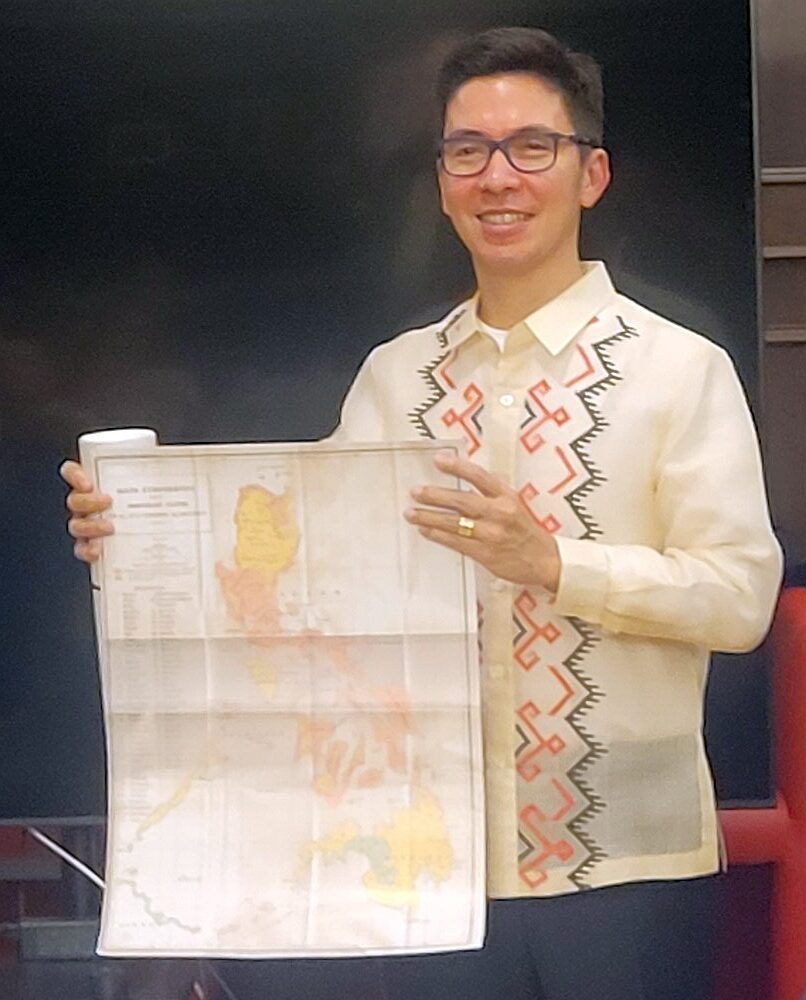
Larena emphasised that Larena Labs’ work rests on close partnerships with local and indigenous communities. He described ethical protocols and collaborative fieldwork practices designed to include community perspectives, ensure mutual benefit, and contextualise genetic results within oral histories and archaeological records. This multidisciplinary, participatory approach featured prominently in the presentation as a model for responsible population genetics.
Discussion
The lecture concluded with a lively question‑and‑answer session. Audience questions ranged from methodological clarifications to the social and ethical implications of publishing population genetic results. Professor Larena responded with clear explanations, reiterating the team’s commitment to transparency and community dialogue. His talk was met with sustained applause for its lucidity and scholarly breadth.
Closing and reception
President Obenaus closed the programme with a light‑hearted remark and thanked the Philippine Embassy for providing refreshments. The evening continued with an informal reception in the Austrian Computer Society’s premises, where guests exchanged impressions of the lecture and the broader implications of the research.
Siegfried Höfinger
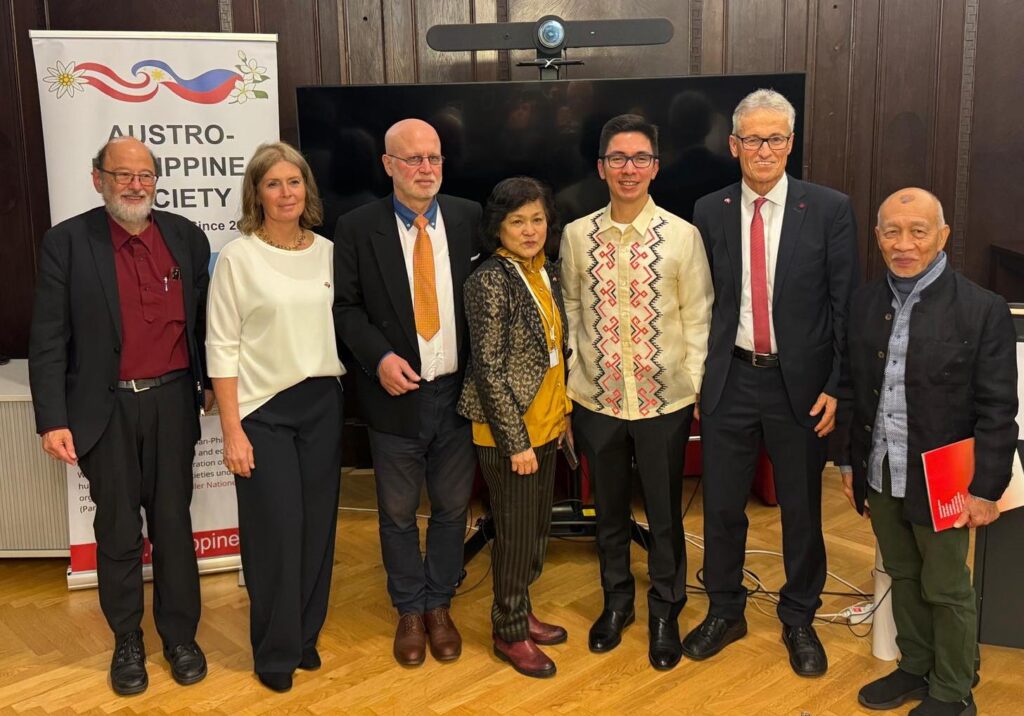
Comments
„The lecture not only deepened understanding of Filipino ancestry but also underscored the Philippines’ central role in unraveling the broader story of human evolution and migration“ (Hector Pascua, The Austrian Press).
